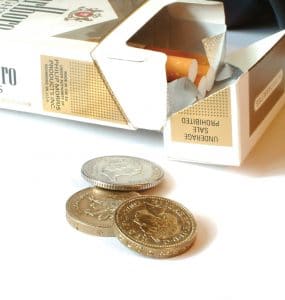Christmas expense and the financial postmortem will have many seeking ways to curb spending in the new year. Here, Sarah Coles looks at some quick wins for saving money.

Don’t think of it as giving up cigarettes and alcohol: think of it as gaining a Mercedes.
If you were to ditch some of your most wasteful habits this year, you could end 2020 almost £4,000 better off.
You could use your savings to build a vital financial safety net, or save and invest your way to some of the finer things in life – from a five star holiday to a Mercedes convertible.
And you don’t need iron willpower to make a difference. If you were to ditch that unused gym membership, cut out two bottles of wine and give up three takeaways a month – you could save £920 a year – which is a decent step towards your financial goals.
What could you do with that money?
If you saved £300 a month into a regular savings account paying 3%, you’d have £3,650 by the end of the year. With monthly outgoings of £1,000 you could have an emergency savings safety net of 3-6 months’ expenses within a year. If you already have emergency savings, you could spend it on a fortnight in Disney World Florida or five star all-inclusive holiday to Barbados instead.
If you drip-fed it into investments, and they returned an average of 5% a year for 10 years, you’d have £46,585 – enough for a Mercedes E Class convertible.
If you put it into your pension from the age of 30 – and your employer matched your contributions – then once you add in the full flat rate state pension, you could have a retirement income of £24,300 a year – assuming 5% growth and 2.5% inflation.
How to stick to your resolutions
Only one in ten people will stick with their New Year’s Resolutions, which is why so many have been trying and failing to stick to the same financial resolutions for years. There are three keys to sticking with your plans:
Don’t change too much all at once:
Lifestyle change is hard, so a dramatic transformation is going to be an uphill struggle. The easiest approach is to set one achievable goal at a time and get used to it before you take on anything else.
Set realistic targets:
If you’re overly optimistic it’s easy to get disillusioned, so set realistic, achievable goals.
Start with the easy things:
If you’re pledging to give up little luxuries like a morning coffee or a weekly takeaway, consider the amount of pleasure you get from them, because if you live for your morning coffee, giving up will be a constant, ongoing battle – increasing your chances of failure. It’s far better to focus on the expensive habits you don’t really value first.
(Story source: 50 Connect)

